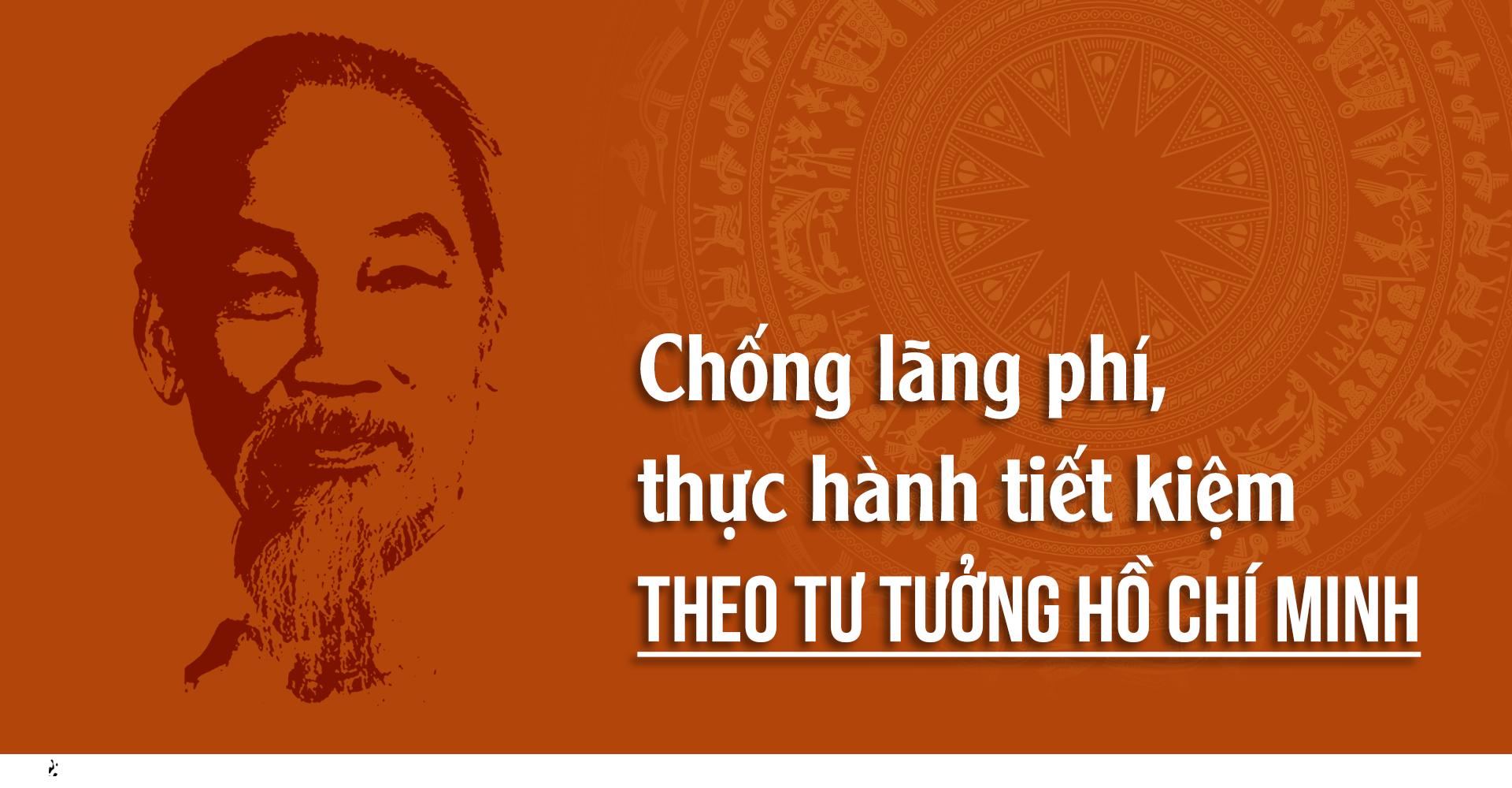
President Ho Chi Minh is the founder, leader and trainer of our Party. His ideology, morality and style are the ideological foundation and compass for all actions of the Party. Right from the early days of the successful revolution, President Ho Chi Minh regularly educated cadres and Party members to improve revolutionary ethics, practice thrift, fight corruption, waste, fight bureaucracy, etc.
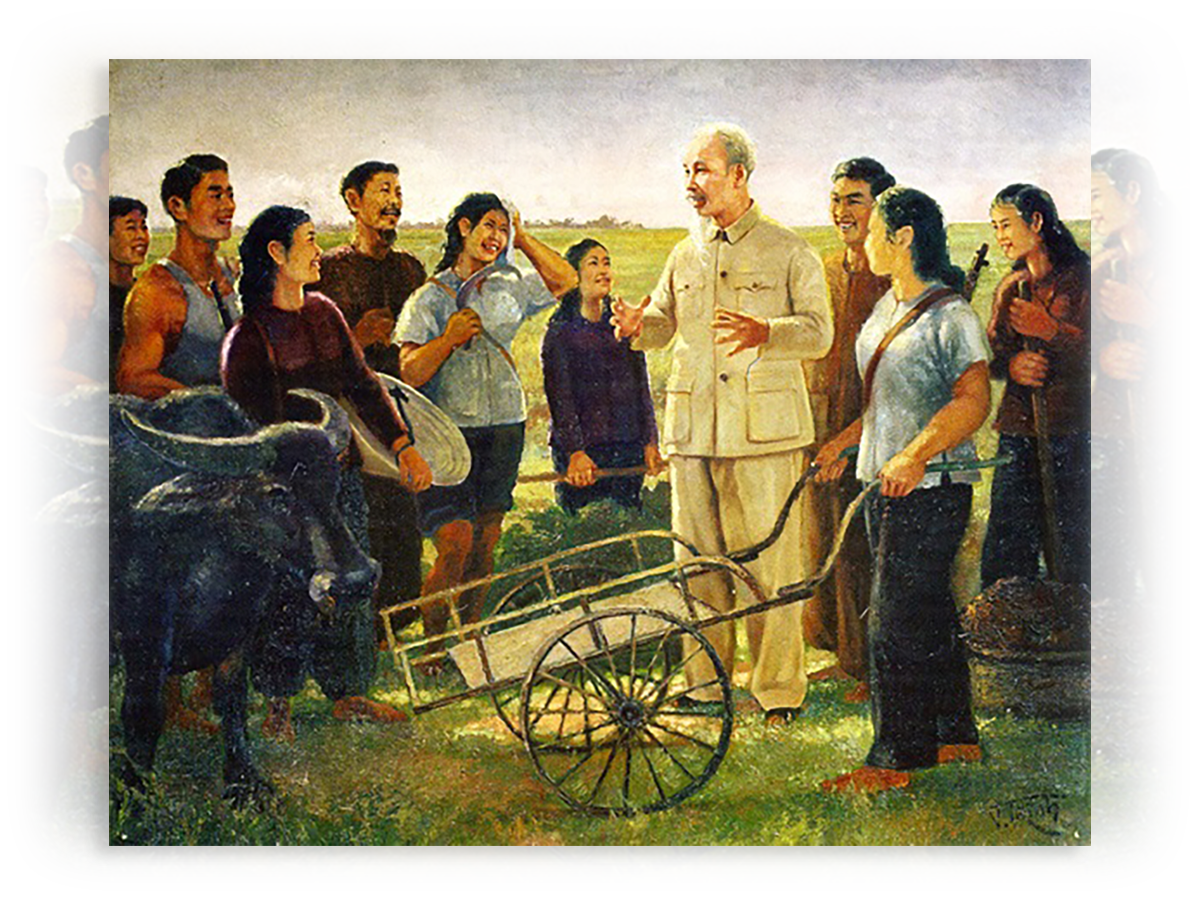

Wastefulness, as pointed out by Him, is indiscriminate consumption, wasting labor, time, money, and material wealth of the people and the country. According to Him, wasting labor is doing something that few people can do, but still using many people; due to careless calculation, mobilizing hundreds of people to the construction site, but there is no work or there are too many people, too little work; improper personnel arrangement, so there are too many managers and too few direct producers. Wasting time is doing something that can be done in a day, a session, but it takes several days; wasting money, wasting material wealth of the State, agencies, and units; personally "spending lavishly, partying, shopping haphazardly, spending money like water", using supplies and materials wastefully. For example, banks are not skillful in using money, causing money to stagnate, not beneficial for increasing production; Economic agencies make impractical plans that are not suitable to the situation, causing the Government to lose money, doing something that is not legal, and having to destroy it and do it again after finishing it, etc. Therefore, we can see that waste is unreasonable spending, waste is having the disease of "showing off", causing unnecessary costs. Waste can sometimes cause more material harm than embezzlement, so President Ho Chi Minh pointed out: "Although waste does not take public money for oneself, the result is still very harmful to the people and the Government. Sometimes it is more harmful than embezzlement."(1). Therefore, he called for a resolute fight against waste in state agencies and in the daily life of each person; it is necessary to fight against wasteful consumption of people's and state's wealth. Fighting waste is closely related to thrift and according to President Ho Chi Minh, to contribute to the revolutionary cause, it is necessary to save labor, save time, save money...; accordingly, all people and all agencies must save. He considered saving as a law of progress of a country, an operating method of an economic regime; not only poor countries practice saving, but even rich countries need to save. In reality, if you save, you must not waste and waste means not saving.
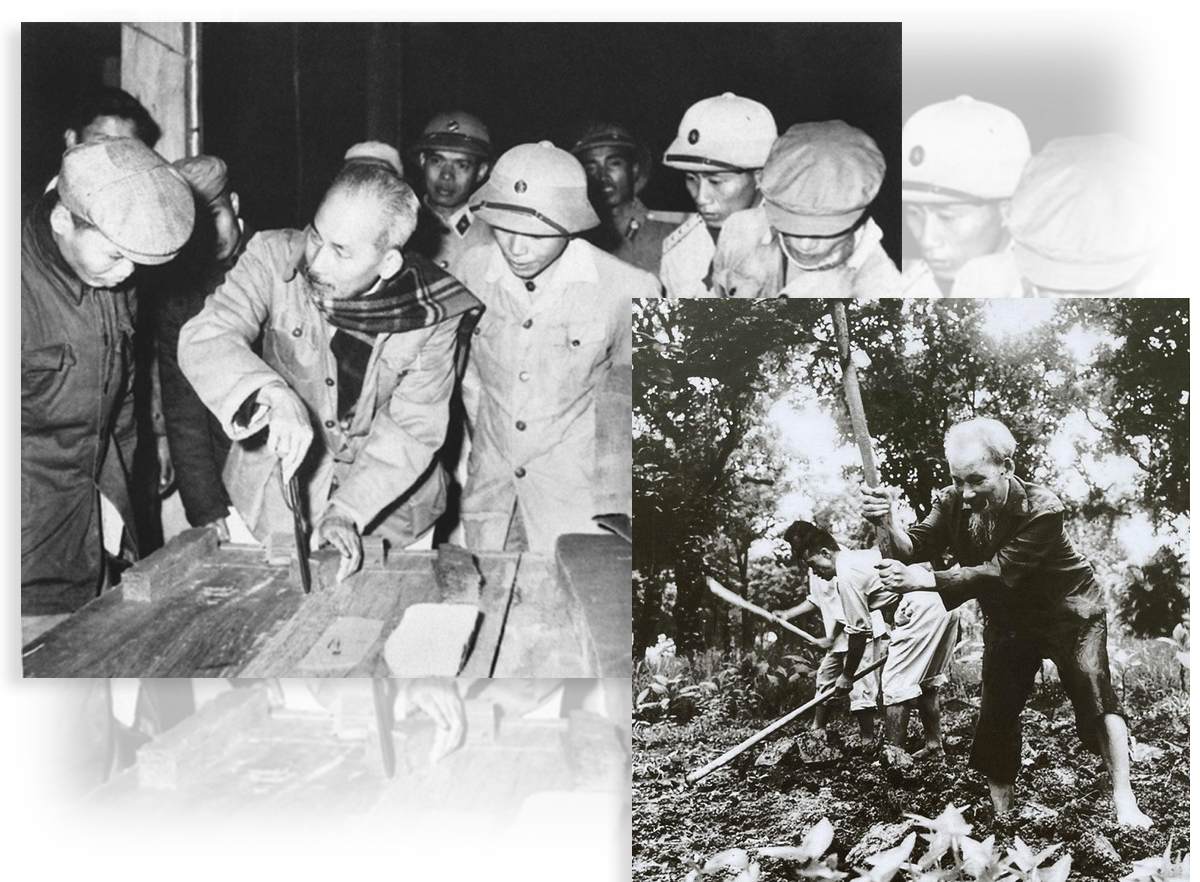
After more than 35 years of implementing the renovation process, our country has achieved great achievements of historical significance. However, a number of cadres, party members, some agencies, units and people still suffer from waste. A common phenomenon in many agencies and units is the waste of labor, when the apparatus is cumbersome, with many staff, but not streamlined as directed by the Central and the Government. As a result, a number of civil servants, due to work arrangements not being in line with their job positions, have led to the situation of "going to work with an umbrella in the morning and returning with an umbrella in the afternoon" still lasting. The problem of wasting time in administrative and career agencies in many places is slowly being overcome; unnecessary meetings are still common, the content of meetings often lasts long, but the conclusions are unclear, etc., so the efficiency is not high.
Some heads of agencies and units have taken advantage of the Party's policy of rotating cadres to widely rotate civil servants and public employees, making the cadres feel insecure in their work, not dedicated to their work; lacking professional expertise and expertise. Therefore, it has led to the problem that whoever "runs" for leadership well will have a stable job and not have to rotate, whoever "runs" for leadership poorly will have to rotate; thereby, not only wasting labor, reducing work efficiency, but also reducing the trust of cadres in the Party organization and the government.
Although the implementation of administrative procedures at state management agencies has made much progress compared to before, it still does not meet the expectations of the people and businesses. Some projects, due to incorrect investment policies or untimely investment, have caused a waste of money, such as a factory being built but not being able to operate because of insufficient input materials and no output market; a market being built but people not going to the market; a project taking over large areas of land but not being implemented for decades; the organization of construction of some project items is not synchronous and scientific, such as newly inaugurated traffic roads, but digging to install electricity lines and water pipes; some projects have increased capital due to prolonged construction, ... not only consuming a lot of materials but also destroying the landscape and environment, the quality of the project is weak and poor, causing waste for the State. Some real estate projects, after being approved for planning, have been arbitrarily adjusted many times to help investors make profits, reducing the area of schools, kindergartens, cultural houses, parks, trees, etc. This not only directly affects the rights of people in the project area but also damages the landscape, urban environment and wastes efforts in planning and design, etc. Taking advantage of the tourism development policy, some localities have organized many festivals, groundbreaking ceremonies, inaugurations of expensive and wasteful works and projects, etc. The above examples and statistics on waste are contrary to Ho Chi Minh's ideology, contrary to the Party's guidelines and policies, and the State's policies, which need to be prevented and pushed back promptly.
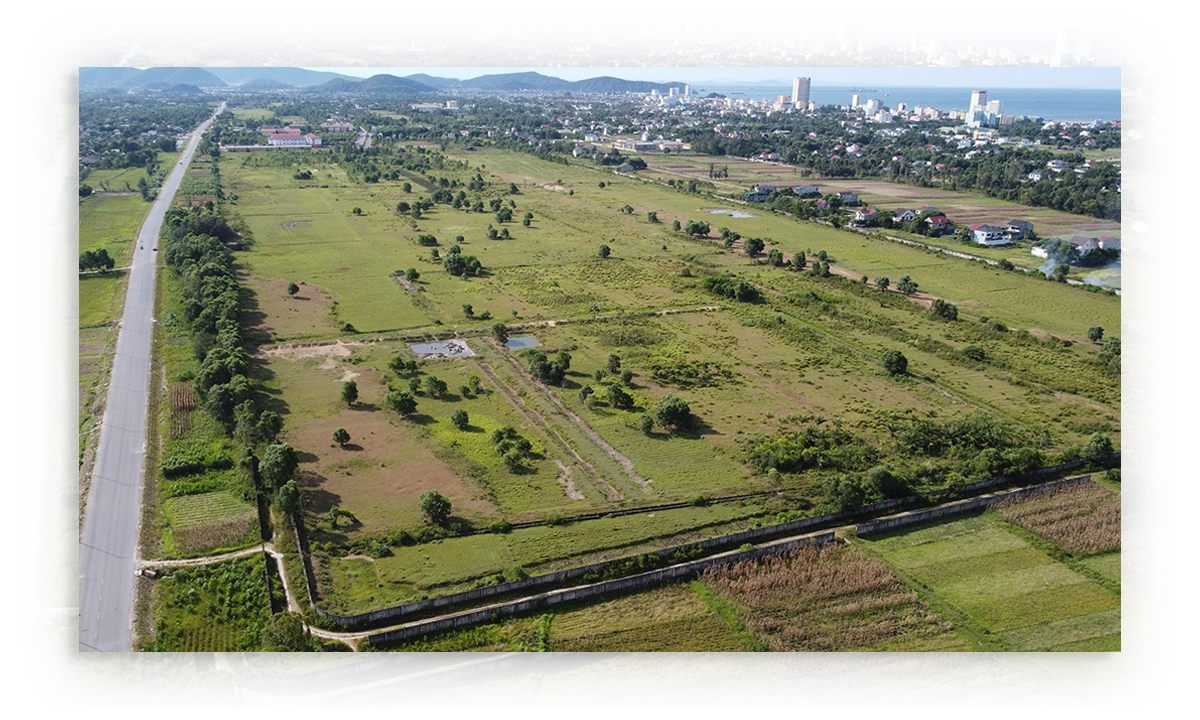
The root cause of waste was clearly pointed out by President Ho Chi Minh, which is individualism - an obstacle that lies within each cadre, party member and each person, and is the fundamental cause of many shortcomings, mistakes and other obstacles. According to him: "Individualism is a dangerous enemy that each of us must always be vigilant to prevent and resolutely destroy." The manifestation of individualists is "They do not care about the lives of the people but only think about their own interests. They forget that every coin and grain of rice is the sweat and tears of the people, which gives rise to ostentation and waste. They consider themselves entitled to live a life of luxury and pleasure, leading to embezzlement, debauchery, and even sin. All the above mistakes are the offspring of individualism."(2).
To gradually overcome the above shortcomings, it is necessary to create a positive change in awareness for cadres, party members and people to organize daily practice at all levels and sectors. In particular, it is necessary to promote the exemplary responsibility of cadres and party members according to the motto that the higher the position, the more exemplary they must be in fighting waste and practicing thrift in both work and daily life. Party committees at all levels continue to lead and direct innovation and perfect the organization and staff of the political system to be streamlined, operate effectively and efficiently (at the provincial, district and grassroots levels), meeting the requirements of tasks in the new period. Reality shows that initially, the political system has been streamlined and the number of civil servants and public employees in some sectors and fields has decreased, but the apparatus is still cumbersome, and in some places the number of staff has increased. In the context of the scientific and technological revolution, the Fourth Industrial Revolution, especially the strong development of digital technology, creating breakthroughs in many fields; along with raising people's awareness, all policies, legal documents directly related to the people need to be implemented synchronously and effectively. Early research to drastically reduce a number of organizations at the intermediate level and continue to build a streamlined political system that operates effectively and efficiently. Strongly streamlining the payroll and making good use of talents are important solutions, contributing to the practice of thrift and anti-waste with results. In the coming time, competent agencies need to promptly supplement and perfect mechanisms, policies, laws, responsibilities of organizations and individuals, especially leaders in the fight against waste, practice thrift and better promote people's mastery. Organize to well implement the motto "People know, people discuss, people do, people check, people supervise, people benefit". The Vietnam Fatherland Front and socio-political organizations continue to enhance their responsibility for supervision and social criticism, actively fight against waste and practice thrift in all socio-economic fields. Along with the above measures, all levels and sectors need to strengthen inspection and examination work, resolutely and strictly handle those who waste and do not practice thrift.

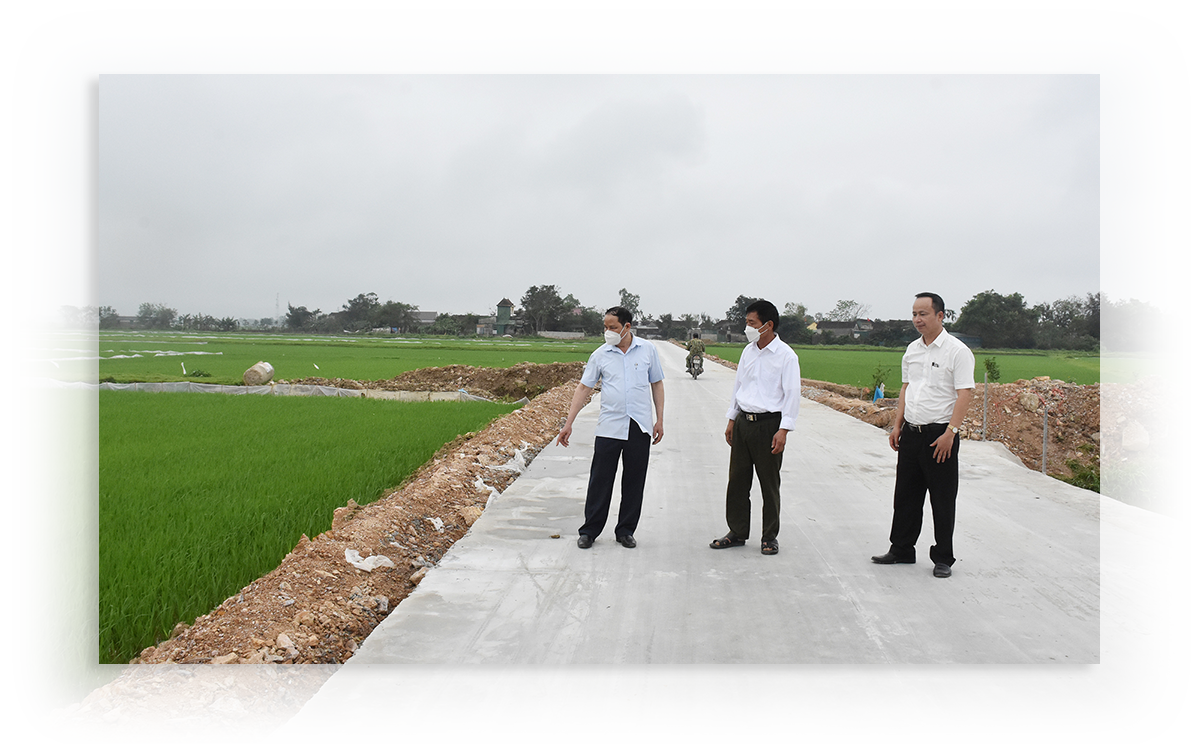
Waste of labor, time, talent, resources, and money of the State, of individual cadres, party members, civil servants, public employees, and citizens still occurs every day, every hour; therefore, Party committees and authorities at all levels need to strengthen leadership and direction of functional agencies and the entire political system to effectively prevent and combat waste and practice thrift.
(1) Ho Chi Minh: Complete Works, National Political Publishing House Truth, Hanoi, 2011, vol. 7, p. 357
(2) Ho Chi Minh: Complete Works, op. cit., vol. 14, p. 469
